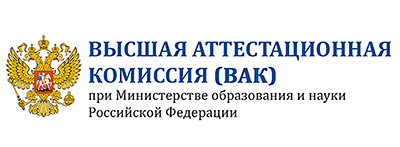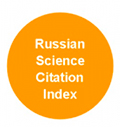The sequence of life events of Russian men serving and not serving in the military
Abstract
Using two representative Russian surveys - “Person, Family, Society” (used for building research models) and “Russian monitoring of the economic condition and health of the population” (for auxiliary, descriptive analysis) - we analyzed the differences in the life courses of Russian men who served and did not serve in the army. For these two groups of men, we compared the ages and sequences of the most important first events (separation from the parental home, first job, obtaining an education, first cohabitation, first marriage, and first child). We constructed socio-demographic “portraits” for these men at the age of 15 and at the moment of the survey (2013).
Our results revealed that those men who served in the military have more socio-economic and demographic events than those who avoided military service: men with military experience start adult life earlier and more intensively. The mechanism of selecting men for military service has changed since the 1990s. Men who serve are mainly children of parents without higher education and not occupying senior positions in the period of their children’s socialization. After completing] military service, men often work and live separately, while those who did not serve in the army study and live with their parents.
Downloads
References
Abbott A. (1995). Sequence Analysis: new methods for old ideas // Annual Review of Sociology. Т.21. №1: 93-113.
Artamonova А., Е. Mitrofanova (2016). Sozhitelstva v Rossii: promezhutochnoe zveno ili legitimniy institut [Cohabitation in Russia: “trial” union or an independent social institution] // Monitoring obshestvennogo mneniya: economicheskie i socialnie peremeny [Monitoring of public opinion: economic and social changes]. № 1: 126-145.
Billari F., R. Piccarreta (2005). Analyzing demographic life courses through Sequence Analysis // Mathematical Population Studies. V.12. №2: 81–106.
Billari F.C. (2001). Sequence Analysis in demographic research // Canadian Studies in Population. V.28. №2: 439–458.
Bochaver А. (2008). Issledovaniya zhiznennogo puti cheloveka v sovremennoy zarubezhnoy psihologii [Investigations of men’s life course in contemporary foreign psychology] // Psihologicheskiy zhurnal [Psychological journal]. №5: 54–62.
Britton P., P. Ouimette, R. Bossarte (2012). The effect of depression on the association between military service and life satisfaction // Quality of Life Research. V.21. №10: 1857–1862.
ChSO [MFO] (2013). Obsledovaniye demokraticheskogo, sotsial'nogo i ekonomicheskogo povedeniya naseleniya Rossiyskoy Federatsii «Chelovek, sem'ya, obshchestvo» (1-ya volna), provodimoye Institutom sotsial'nogo analiza i prognozirovaniya RANKhiGS [A survey of the demographic, social and economic behavior of the population of the Russian Federation «Man, family, society» (1st wave), conducted by the Institute for Social Analysis and Forecasting, RANEPA].
Danilova N. (2005). Srochniki, pidzhaki, professionaly: raznye muzhestvennosti uchastnikov postsovetskih voin [Different masculinities of post-Soviet wars participants] // Zhurnal sociologii i socialnoy antropologii [Journal of Sociology and Social Anthropology]. V.8. №2: 110–126.
Denisenko М., Zh.-P. Dalla Zuanna (2001). Seksualnoe povedenie rossiyskoy molodezhi [Sexual behavior of Russian youth] // Sociologicheskie issledovaniya [Sociological studies]. №2: 83–87.
DolgovaА., Е. Mitrofanova (2015). Otdelenie ot roditel'skoy sem'i v Rossii: mezhpokolencheskiy aspekt [[Leaving the parental home in Russia: Intergenerational aspects] // Economicheskaya sociologiya [Economic Sociology]. V.16. №5.
Elder J.G.H. (1987). War mobilization and the life course: A cohort of World War II veterans // Sociological Forum 2: Kluwer Academic Publishers: 449–472.
Ezhov О. (2005). Paradigma zhiznennogo puti v zarubezhnoy sociologii [The paradigm of the life course in the foreign sociology] // Zhurnal sociologii i social'noy antropologii [Journal of Sociology and Social Anthropology]. V.8. №3.
Forbes (2011). October 25. URL: http://www.forbes.ru/news/76858-medvedev-cherez-5-7-let-dolya-prizyvnikov-v-armii-rf-sokratitsya-do-10-20 (data accessed: 24.02.2015).
Forrest A. (1989). Conscripts and deserters: The army and French society during the Revolution and Empire. New York: Oxford University Press. First edition: 304.
Friedman M. (1967). Why not a volunteer army? // New Individualist Review. V.4. №4: 3–6.
Gradoselskiy V. (2005). Komplektovanie vooruzhennih sil SSSR v 1970—1980-е gody [Completion of Soviet Union armed forces in 1970-1980] // Voenno-istoricheskiy zhurnal [War-historical Journal]. №9: 18-21.
Gurko Т. (2001). Transformaciya brachno-semeinyh otnosheniy [The transformation of marital and family relationships] // Russia: transformiruyusheesya obshestvo / V. Yadov, ed. Moscow: KANON-press-C: 272-283.
Jennings J.A., A.R. Sullivan, J.D. Hacker (2012). Intergenerational transmission of reproductive behavior during the demographic transition // Journal of Interdisciplinary History. V.42. №4: 543–569.
Kon I. (1999). Sociologicheskaya psihologiya [Sociological psycology] // Voronezh: MODEK: 254-270.
Lesthaeghe R. (1995). The second demographic transition in Western countries: An interpretation // Gender and family change in industrialized countries. Oxford: Clarendon Press: 17–62.
MacLean A., G.H. Elder (2007). Military service in the life course // Annual Review of Sociology. V.33. №1: 175–196.
Magun V. (2009). Normativnye vzglyady na semyu u rossiyan i francusov [Normative views on the family among Russian and French people] // Roditeli i deti, muzhchiny i zhenshiny v sem'ei obshestve [Parents and children, men and women in family and society]. M.: NISP.139-162.
Maleva Т. et al. (2014). Razrabotka metodologii i provedeniye pervoy pilotnoy volny regulyarnogo obshenacional'nogo reprezentativnogo obsledovaniya naseleniya po izucheniyu demograficheskogo, social'nogo i ekonomicheskogo povedeniya, vkluchaya pensionnoe povedenie [Development of methodology and holding of the first pilot wave of regular national representative survey of population on the demographic, social and economic behavior, including retirement behavior]. M.: RANEPA.
Mihel' D. (2001). Muzhchiny, mal'chiki v pole boya [Men, boys on the battlefield] // Gendernye Issledovaniya [Gender Studies]. V.6: 133–149.
Mitrofanova Е. (2010). Semya i brak, matrimonial'noe, reproduktivnoe i seksual'noe povedenie v krestyanskoy, sovetskoy i sovremennoy Rossii [Family and marriage, matrimonial, reproductive and sexual behavior in peasant, Soviet, and contemporary Russia] // Demoscope Weekly. №423 - 424. URL: http://demoscope.ru/weekly/2010/0423/student01.php (data accessed: 20.02.2015).
Osnovnoy Zakon (Konstituziya) SSSR (1940) [The Basic Law (Constitution) of the USSR (1940)] // Konstituzii i konstituzionnye akty SSSR (1922-1936). Sbornik dokumentov [Constitutions and constitutional acts of the USSR (1922-1936). Collection of documents] / I.P. Traynina, ed. M.
Popov D. (2009). Transformaciya semeinyh cennostey i vtoroy demograficheskiy perehod v rossii: kto v avangarde? [Transformation of family values and second demographic transition: who is in vanguard?] // Roditeli i deti, muzhchiny i zhenshiny v sem'e i obshestve [Parents and children, men and women in family and society] / S.Zaharov, T. Maleva, O. Sinyavskaya, eds. M.: NISP: 336.
Potârcă G., M. Mills, L. Lesnard (2013). Family formation trajectories in Romania, the Russian Federation and France: Towards the second demographic transition? // European Journal of Population. V.29. №1: 69–101.
RBK (2015). April 25. URL: http://www.rbc.ru/rbcfreenews/553b923f9a79477833fc113b (data accessed: 24.02.2015).
Ritschard G., M. Oris (2005). Life course data in demography and social sciences: Statistical and data-mining approaches // Advances in Life Course Research. V.10: 283–314.
RMEZ [RLMS] (2013). Rossiyskiy monitoring ekonomicheskogo polozheniya i zdorov'ya naseleniya NIU-VSHE (22-ya volna), provodimyy NIU «Vysshaya shkola ekonomiki» i ZAO «Demoskop» pri uchastii Tsentra narodonaseleniya Universiteta Severnoy Karoliny v Chapel Khille i Instituta sotsiologii RAN [Russian monitoring of the economic situation and public health HSE (22th wave) conducted by NIU "Higher School of Economics" and CJSC "Demoscope" with the participation of the Center at the University of North Carolina at Chapel Hill, the population and the Institute of Sociology]. URL: http://www.hse.ru/rlms (date accessed: 20.02.2015).
Rozhdestvenskaya Е. (2012). Biograficheskiy metod v sociologii [Biographical method in sociology] // Vysshaya Shkola Economiki [HSE Publishing House]: 381.
Sampson R.J., J.H. Laub (1996). Socioeconomic achievement in the life course of disadvantaged men: Military service as a turning point, circa 1940-1965 // American Sociological Review. V.61. №3: 347–367.
Shearer D. (1998). Private armies and military intervention. London: Adelphi Paper: 316.
Smirnov А. (2009). Sluzhba v armii poteryannoe vremya [Military service as waste of time] // Sociologicheskie Issledovaniya [Sociological studies]. V.12: 100-108.
Suhanova М. (2014). Otnoshenie yunoshey k sluzhbe v armii [Attitude of young men to military services] // Materialy IX mezhdunarodnoy nauchno-prakticheskoy konferentsii prepodavateley i studentov «Chelovek v XXI veke» [Proceedings of the IX International scientific-practical conference of teachers and students "Man in the XXI century man"]. Obninsk: 78-79.
Van de Kaa D.J. (1987). Europe’s second demographic transition // Population Bulletin. V.42: 3–57.
Van Schellen M., R. Apel, P. Nieuwbeerta (2012). “Because you’re mine, I walk the line”? Marriage, spousal criminality, and criminal offending over the life course // Journal of quantitative criminology. V.28. №4: 701–723.
Zaharov S. (2007). Demograficheskie obsledovaniya naseleniya: proshloe, nastoyashee, budushee [Demographic Surveys: Past, Present, Future] // Roditeli i deti, muzhchiny i zhenshiny v sem'ei obshestve [Parents and children, men and women in family and society] / T. Maleva, O. Sinyavskaia. M.: NISP: 640.
























